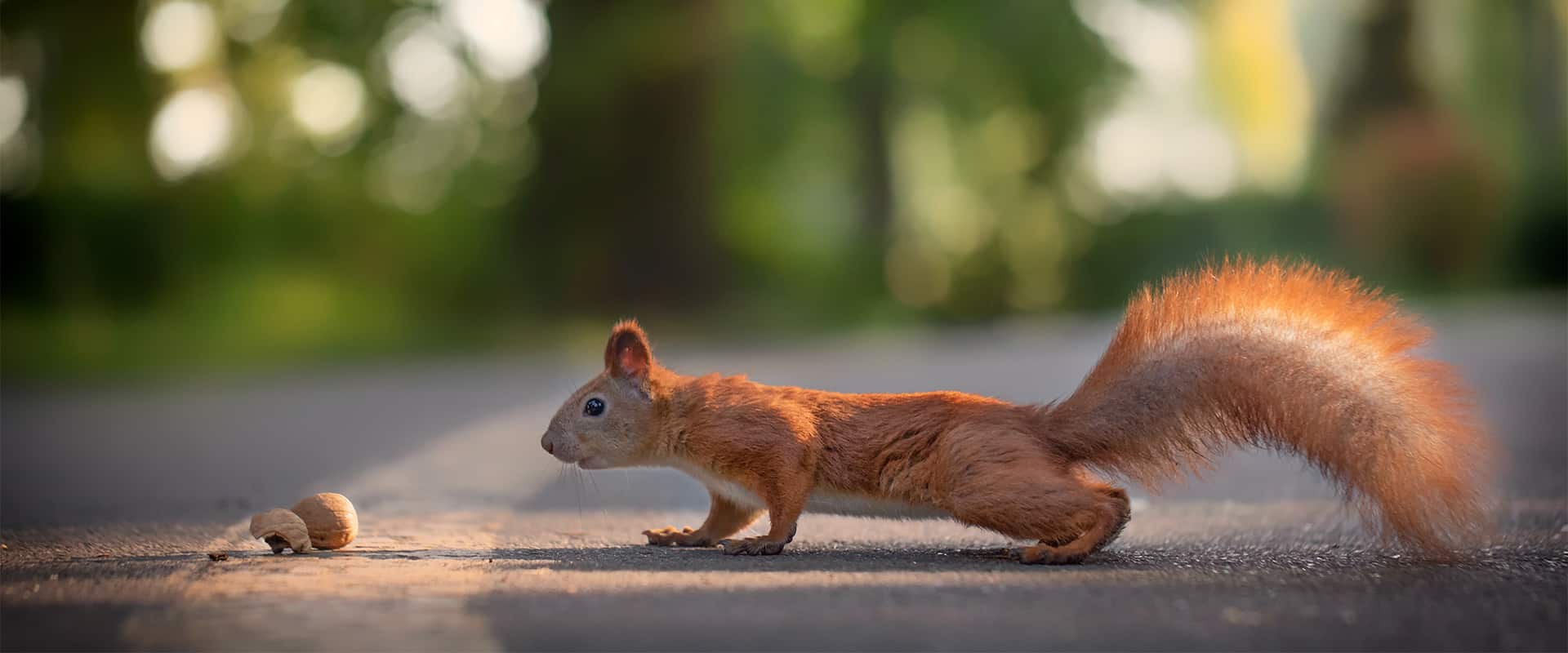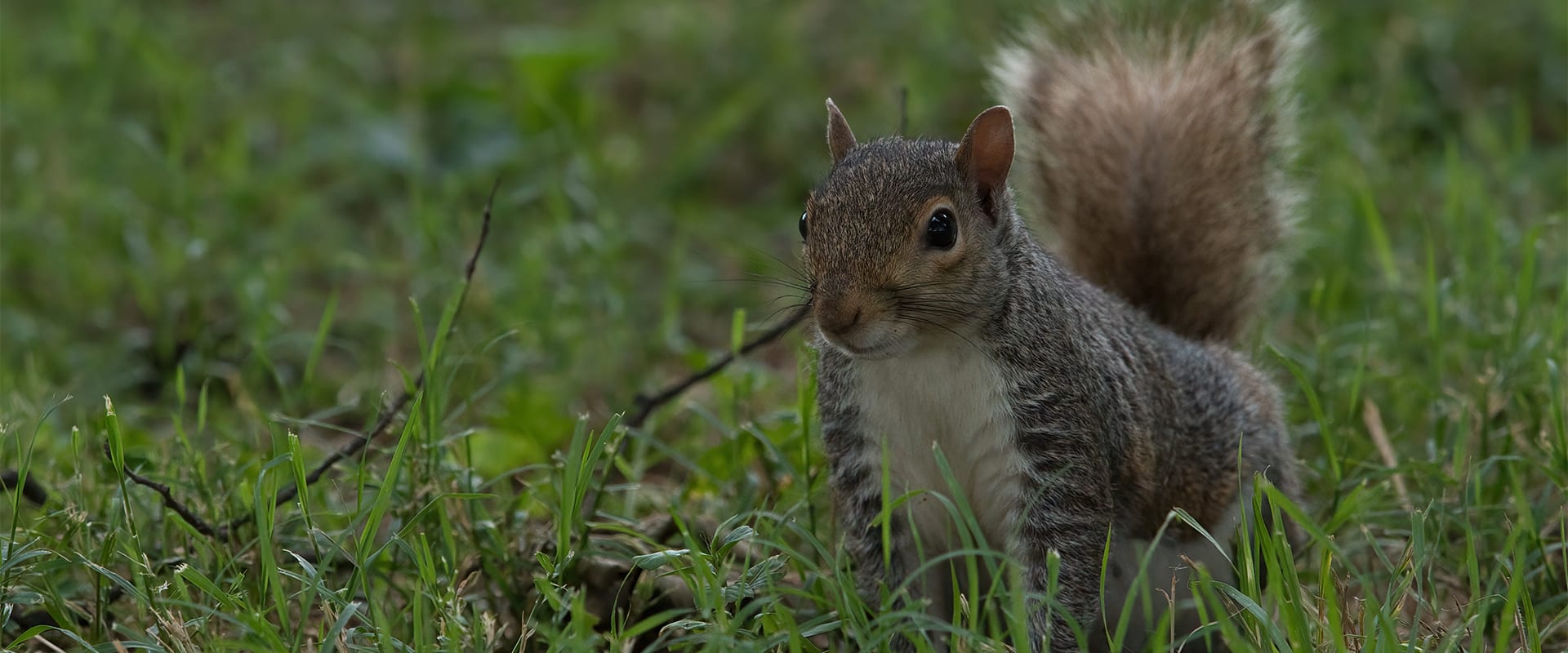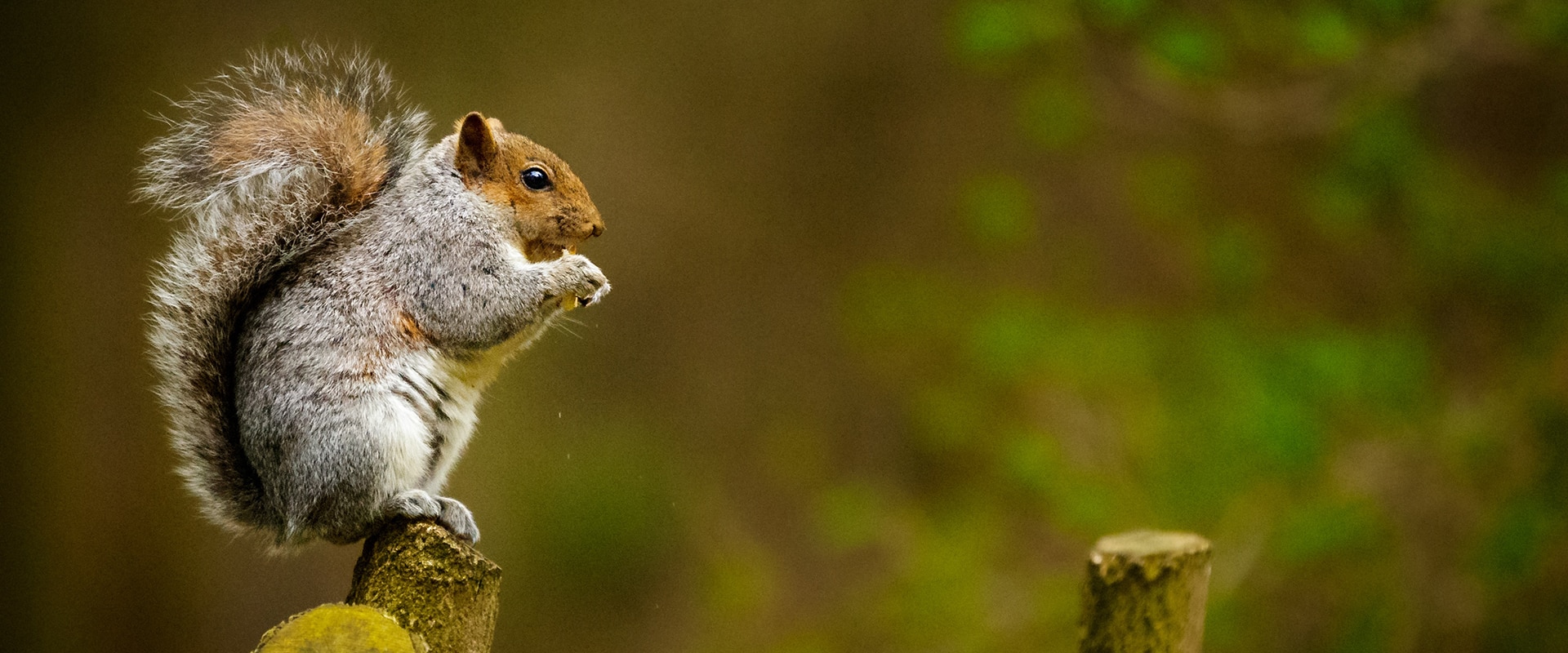To deter squirrels from settling in your yard, using a squirrel repellent can be effective. Squirrels are charming little animals, but they can become a real problem when they invade your outdoor space. Fortunately, there are several methods to keep them away without causing them harm.
Start by checking that your garden doesn’t offer them a food source. Pick up fallen fruits and vegetables and dispose of them in a compost bin or garbage can. Prune the low branches of trees and shrubs, and be sure to pick up dead leaves. If you have climbing plants, make sure they are not accessible to squirrels.
Another solution is to coat tree trunks and branches with tar or pitch, or wrap them with adhesive strips. This will prevent them from climbing, thus discouraging them from staying in your garden. Additionally, using a specially designed squirrel repellent can strengthen your strategy to protect your garden from unwanted visitors.
Another solution is to discourage squirrels by scaring them. You can install plastic owls or cat statues in your garden, or plug in devices that play predator sounds. These are especially effective if you move them regularly, because squirrels quickly get used to motionless sounds.
Finally, there are repellents based on chemical compounds, but they can be harmful to humans and other animals. Before using it, be well informed about the potential risks.
Assess your squirrel’s needs.

Many squirrels need different habitats, whether for economic, emotional or protective needs. In order to keep your squirrel healthy, determining its needs is essential. For example, some squirrels will need room to run, others to hide.
Provide foundations and walls for your squirrel.
Whatever type of squirrel you inhabit, they need clothes to hide and not fall. For squirrels who like to run, put a solid and sturdy foundation on it. For squirrels who are afraid of falling from above, put strong and high walls on it.
Regularly clean your garden and update your ecosystem.
Over time, the feces produced by squirrels compress flowers, vegetables and wild animals. These consequences only aggravate the problems of inavsion. Clean your yard regularly to remove feces and prevent squirrels from feeding on toxic substances.
Install camera sensors to monitor your squirrel.
Camera sensors allow you to monitor your squirrel to ensure its safety. If your squirrel seems to be in trouble, you can intervene immediately.
Get to know the squirrel inavsion signals.
Some signals announce the problems of inavsion of a squirrel. These signals include unusual screams, unusual paths, and strange behavior. Knowing how to recognize these signals can help you intervene quickly.
How can you keep squirrels out of your garden?

In most cases, squirrels do not enter gardens to do harm, but simply to seek food or shelter. However, it is possible to prevent them from entering your garden by implementing preventive measures.
First, consider cutting down trees and shrubs near your home, as squirrels tend to nest there. Then, install a solid fence around the garden and regularly check for holes or loopholes.
You can also put natural repellents in your garden, such as pepper or basil, or even ultrasound specially designed to repel squirrels. Finally, never leave food or water within reach of squirrels and clean your garden regularly to avoid attacks.
Are there natural methods to control squirrels in gardens?
Yes, there are several natural methods to combat squirrels in gardens. Among these is the use of climbing plants such as ivy or virgin vine, which can be planted around the garden to deter squirrels from entering. In addition, squirrels are sensitive to strong odors, so it is possible to make a repellent based on essential oils of lemongrass, peppermint or cloves, which are sprayed on plants and shrubs in the garden. Finally, it is also possible to place wooden piles around the garden, on which you can attach strips of cloth or bells that will make noise when squirrels try to pass.
The most frequently asked questions about squirrel repellent

How can I identify a squirrel infestation in my garden?
The signs of a squirrel infestation in your garden can be varied. You can spot damage to plants, holes in the ground where squirrels have buried nuts, and damage to tree bark. The frequent presence of squirrels in the area is also a sign. You can spot their droppings, which are small in size and look like hazelnuts, or squirrel tracks in the garden. If you witness more than one of these signs, it’s likely that you have a squirrel infestation.
What types of squirrel repellents are available on the market?
There are several types of squirrel repellents, each with its advantages and disadvantages. Herbal repellents use natural scents, such as those of cayenne pepper or garlic, to keep squirrels away. Chemical repellents are often in the form of sprays or granules containing ingredients that give off an unpleasant odor. Electronic repellents emit sounds or vibrations to disturb squirrels. Each of these types of repellents can be effective, but it’s essential to choose the one that best suits your situation.
How to apply squirrel repellent effectively?
The effective application of squirrel repellent depends on the type of product you are using. Always follow the manufacturer’s instructions provided on the package. In general, you’ll need to apply the repellent around areas where squirrels are causing problems, such as planting areas or feeding areas. Be sure to reapply the repellent according to the manufacturer’s recommendations to maintain its effectiveness. It is also essential to keep the repellent out of the reach of pets or to follow precautions if you have pets.
What are some preventative methods to prevent squirrels from invading my garden?
Prevention is often the key to avoiding squirrel infestations. Start by eliminating food sources in your garden. Regularly pick up fallen fruits and vegetables, and put them in a compost bin or a tightly closed garbage can. Prune the low branches of trees and shrubs to keep squirrels away from your home. Eliminate potential refuge areas, such as piles of fallen leaves. Make sure climbing plants are out of squirrels’ mouth by keeping them well trimmed. These measures will help deter squirrels from settling in your garden.
Are squirrel repellents safe for pets?
The safety of squirrel repellents for pets depends on the type of product you are using. Some repellents are designed to be safe for pets, but others can pose risks, especially if they contain harmful chemicals. If you have pets, be sure to choose products that are specifically labeled as safe for them, or use them with caution by applying them in areas where your pets won’t be able to access them. It is essential to keep your pets away from treated areas until the repellent dries or the manufacturer recommends it.
To learn more about the different extermination companies, we invite you to consult the catalog: https://immontreally.com/category/gestion-parasistaire/
